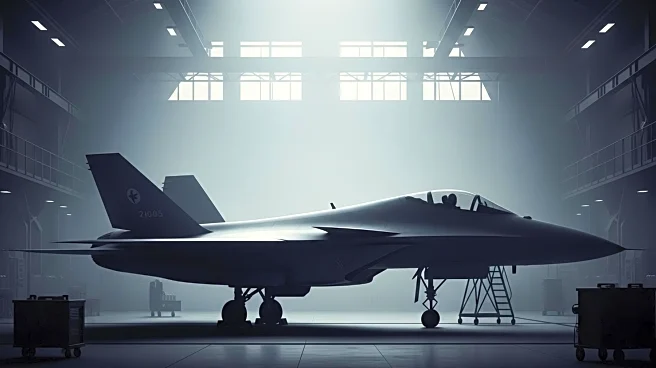What's Happening?
The Netherlands' highest court has mandated the government to reassess its suspended license for exporting F-35 fighter jet parts to Israel. This decision follows concerns that these parts could be used in violations of international law amid Israel's ongoing military actions in Gaza. The Supreme Court's ruling comes after an appeals court in The Hague had previously banned the transfer of these parts in February 2024, citing potential breaches of international law. The Dutch government, which had suspended the exports following the appeals court's decision, now has six weeks to reevaluate the license. Foreign Minister David van Weel has indicated that, given the current situation in Gaza, it is unlikely that exports will resume. The case was initially brought by three Dutch rights groups in late 2023, arguing that the Netherlands could be complicit in possible war crimes by transferring the parts.
Why It's Important?
This ruling has significant implications for international relations and arms export policies. It highlights the tension between national foreign policy decisions and international humanitarian law. The decision could impact the Netherlands' diplomatic relations with Israel and influence other countries' arms export policies. The ruling also underscores the role of judicial systems in overseeing government actions related to international law. For Israel, the suspension of F-35 parts could affect its military capabilities, particularly in the context of its ongoing conflict with Hamas. The decision also reflects broader European Union dynamics, as seen in Slovenia's symbolic ban on arms trade with Israel, potentially setting a precedent for other EU nations.
What's Next?
The Dutch government is expected to conduct a thorough reassessment of the export license within the six-week timeframe set by the court. This reassessment will likely involve consultations with legal experts and international law advisors to ensure compliance with humanitarian standards. The outcome could influence future arms export policies and set a legal precedent for similar cases. Additionally, the decision may prompt reactions from international human rights organizations and could lead to increased scrutiny of arms trade practices globally. The political landscape in the Netherlands, with upcoming national elections, may also play a role in shaping the government's final decision.
Beyond the Headlines
The case raises ethical questions about the responsibility of nations in arms trade and their complicity in potential human rights violations. It also highlights the challenges of balancing national security interests with international humanitarian obligations. The ruling could lead to increased advocacy for stricter arms export controls and greater accountability in international arms trade. Furthermore, it may influence public opinion and policy debates on military support and foreign interventions.









